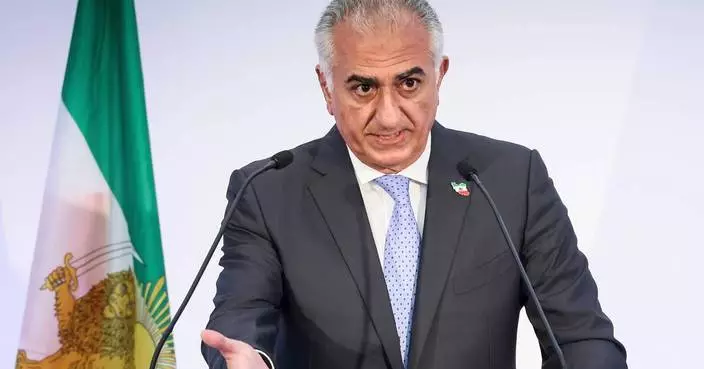ROME (AP) — Italian prosecutors on Saturday requested a six-year prison sentence for right-wing League leader Matteo Salvin i for his decision to prevent more than 100 migrants from landing in Italy when he was interior minister in 2019. If convicted Salvini could be barred from holding government office.
The prosecutors in the city of Palermo have accused Salvini — who’s currently deputy premier and transport minister in the right-wing government led by Giorgia Meloni — of alleged kidnapping for leaving a migrant rescue ship operated by charity Open Arms stranded at sea for 19 days.
During the 2019 standoff, some of the migrants threw themselves overboard in desperation as the captain pleaded for a safe, close port. The remaining 89 people onboard were eventually allowed to disembark in Lampedusa by a court order.
“I would do it all again: defending borders from illegal immigrants is not a crime,” Salvini said on his social media on Saturday.
His lawyer, Giulia Bongiorno, will make her defense statement in Palermo on Oct. 18, and a first sentence could come by the end of the month. A conviction – which in Italy is definitive only at the end of a three-stage judicial process -- could bar Salvini from holding government office.
Meloni and several ministers of her government expressed solidarity with the League leader, defending his decisions. Since she stepped into power in 2022, Meloni has pledged a crackdown on migration, aiming to deter would-be refugees from paying smugglers to make the dangerous Mediterranean crossing.
“It is incredible that a minister of the Italian Republic risks six years in prison for doing his job defending the nation’s borders, as required by the mandate received from its citizens,” the Italian premier wrote on X.
Salvini maintained a hard line on migration in his tenure as interior minister in the first government of Premier Giuseppe Conte, from 2018-2019.
He imposed a “closed ports” policy under which Italy refused entry to charity ships that rescued migrants in distress across the Mediterranean and repeatedly accused humanitarian organizations of effectively encouraging people smuggling.
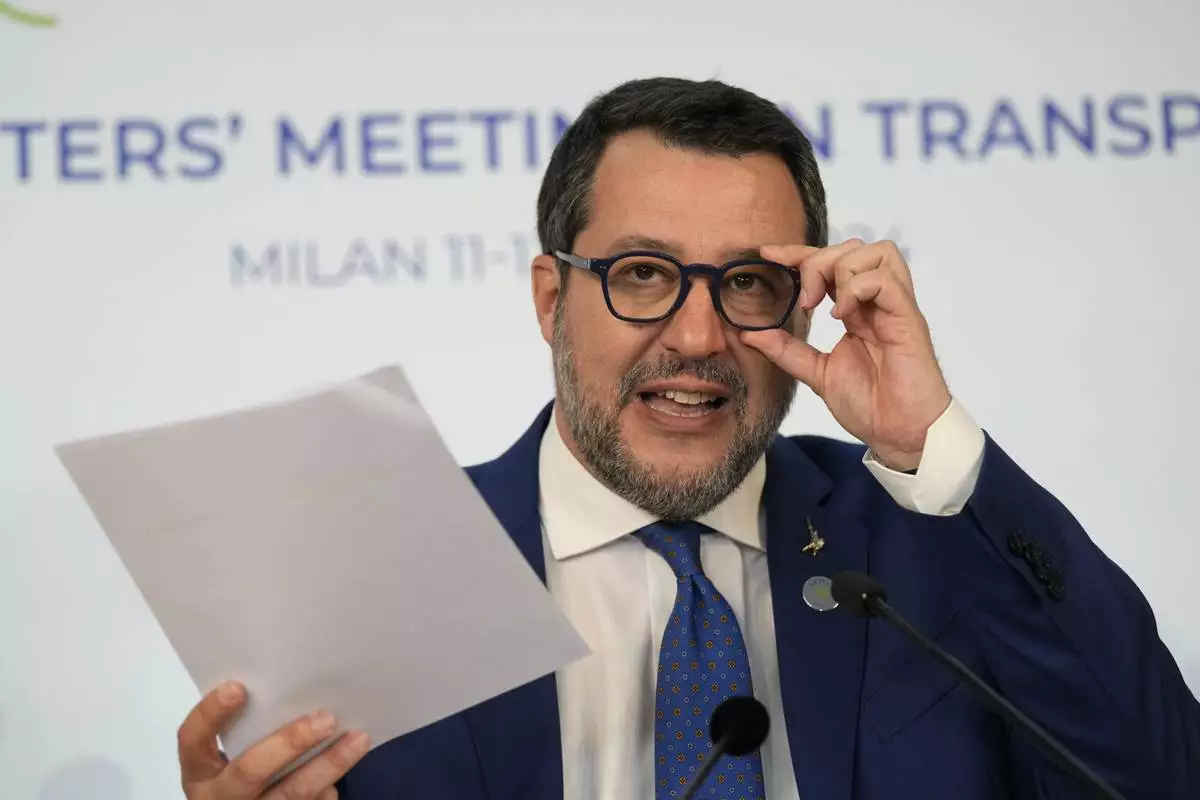
FILE - Italian Deputy Prime Minister and Minister of Infrastructure and Transport Matteo Salvini attends a press conference during the G7 transportation ministers meeting in Milan, Italy, April 13, 2024. (AP Photo/Antonio Calanni, File)
WASHINGTON (AP) — U.S. forces in the Caribbean Sea have seized another sanctioned oil tanker that the Trump administration says has ties to Venezuela, part of a broader U.S. effort to take control of the South American country’s oil.
The U.S. Coast Guard boarded the tanker, named Veronica, early Thursday, Homeland Security Secretary Kristi Noem wrote on social media. The ship had previously passed through Venezuelan waters and was operating in defiance of President Donald Trump’s "established quarantine of sanctioned vessels in the Caribbean,” she said.
U.S. Southern Command said Marines and sailors launched from the aircraft carrier USS Gerald R. Ford to take part in the operation alongside a Coast Guard tactical team, which Noem said conducted the boarding as in previous raids. The military said the ship was seized “without incident.”
Several U.S. government social media accounts posted brief videos that appeared to show various parts of the ship’s capture. Black-and-white footage showed at least four helicopters approaching the ship before hovering over the deck while armed troops dropped down by rope. At least nine people could be seen on the deck of the ship.
The Veronica is the sixth sanctioned tanker seized by U.S. forces as part of the effort by Trump’s administration to control the production, refining and global distribution of Venezuela’s oil products and the fourth since the U.S. ouster of Venezuela President Nicolás Maduro in a surprise nighttime raid almost two weeks ago.
The Veronica last transmitted its location on Jan. 3 as being at anchor off the coast of Aruba, just north of Venezuela’s main oil terminal. According to the data it transmitted at the time, it was partially filled with crude.
The ship is currently listed as flying the flag of Guyana and is considered part of the shadow fleet that moves cargoes of oil in violation of U.S. sanctions.
According to its registration data, the ship also has been known as the Gallileo, owned and managed by a company in Russia. In addition, a tanker with the same registration number previously sailed under the name Pegas and was sanctioned by the U.S. Treasury Department for moving cargoes of illicit Russian oil.
As with prior posts about such raids, Noem and the military framed the seizure as part of an effort to enforce the law. Noem argued that the multiple captures show that “there is no outrunning or escaping American justice.”
Speaking to reporters at the White House later Thursday, Noem declined to say how many sanctioned oil tankers the U.S. is tracking or whether the government is keeping tabs on freighters beyond the Caribbean Sea.
“I can’t speak to the specifics of the operation, although we are watching the entire shadow fleet and how they’re moving,” she told reporters.
However, other officials in Trump's Republican administration have made clear that they see the actions as a way to generate cash as they seek to rebuild Venezuela’s battered oil industry and restore its economy.
Trump met with executives from oil companies last week to discuss his goal of investing $100 billion in Venezuela to repair and upgrade its oil production and distribution. His administration has said it expects to sell at least 30 million to 50 million barrels of sanctioned Venezuelan oil.
This story has been corrected to show the Veronica is the fourth, not the third, tanker seized by U.S. forces since Maduro’s capture and the ship also has been known as the Gallileo, not the Galileo.
Associated Press writer Ben Finley contributed to this report.

Homeland Security Secretary Kristi Noem speaks with reporters at the White House, Thursday, Jan. 15, 2026, in Washington. (AP Photo/Alex Brandon)

Homeland Security Secretary Kristi Noem speaks with reporters at the White House, Thursday, Jan. 15, 2026, in Washington. (AP Photo/Evan Vucci)
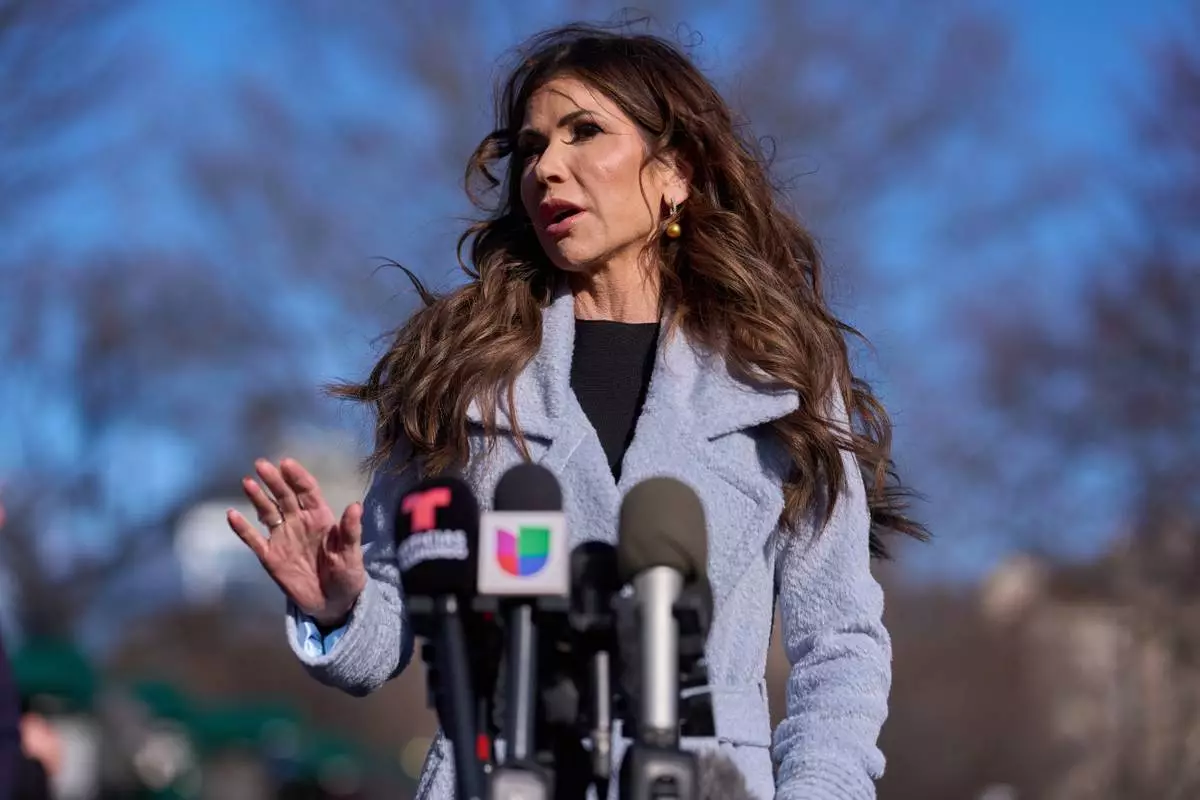
Homeland Security Secretary Kristi Noem speaks with reporters at the White House, Thursday, Jan. 15, 2026, in Washington. (AP Photo/Evan Vucci)
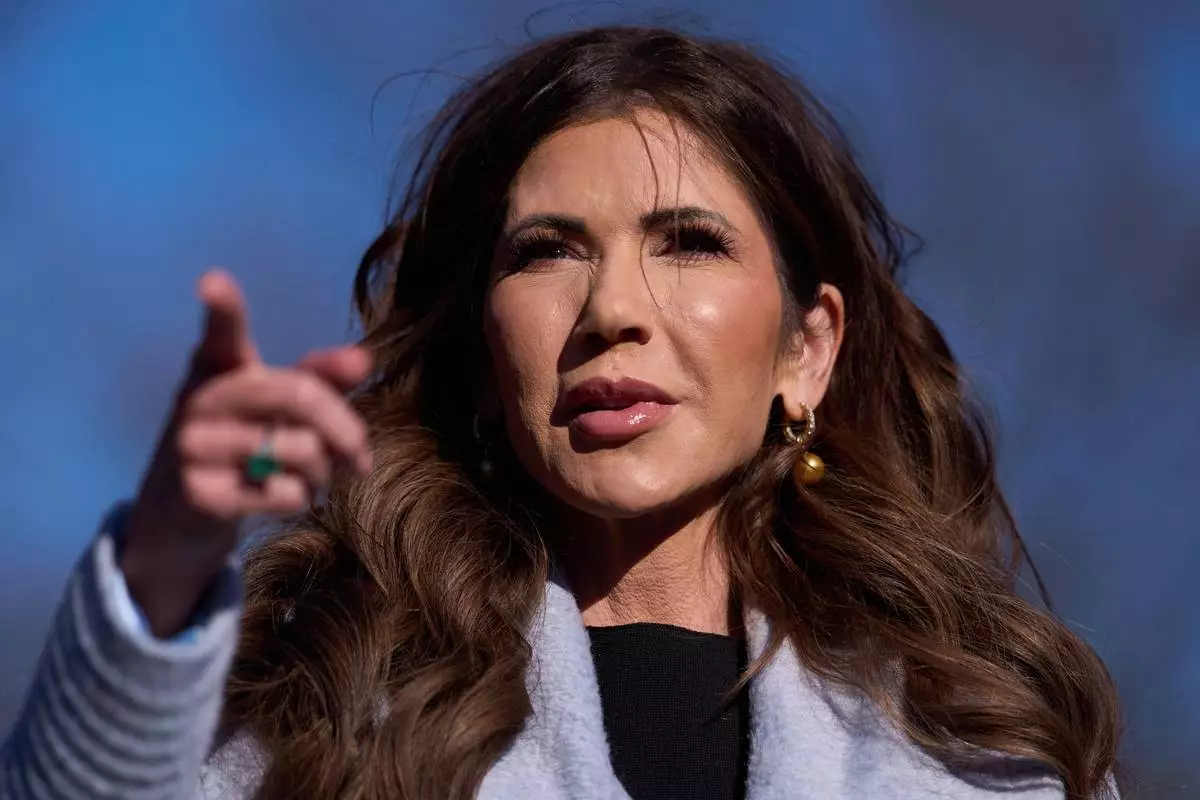
Homeland Security Secretary Kristi Noem speaks with reporters at the White House, Thursday, Jan. 15, 2026, in Washington. (AP Photo/Evan Vucci)

Homeland Security Secretary Kristi Noem speaks with reporters at the White House, Thursday, Jan. 15, 2026, in Washington. (AP Photo/Evan Vucci)
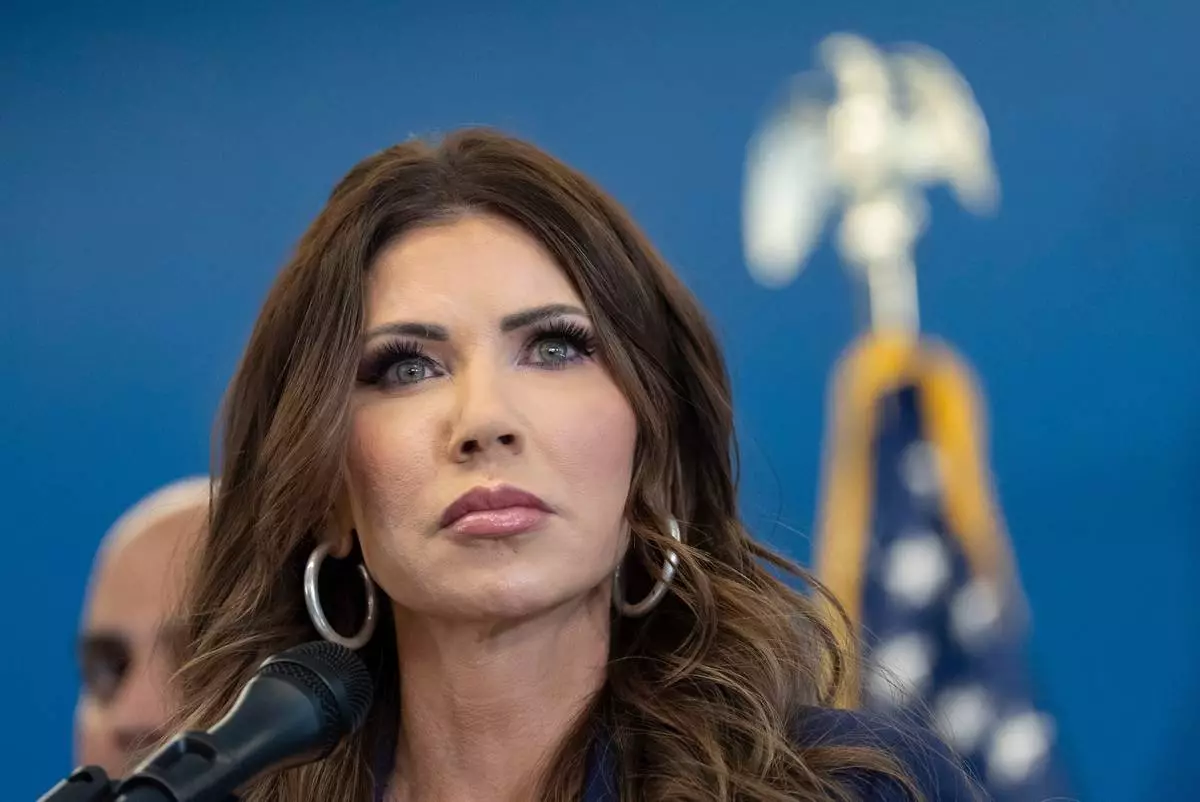
U.S. Homeland Security Secretary Kristi Noem speaks during a press conference, Thursday, Jan. 8, 2026, in New York. (AP Photo/Yuki Iwamura)

U.S. Homeland Security Secretary Kristi Noem speaks at a news conference at Harry Reid International Airport, Nov. 22, 2025, in Las Vegas. (AP Photo/Ronda Churchill, File)












